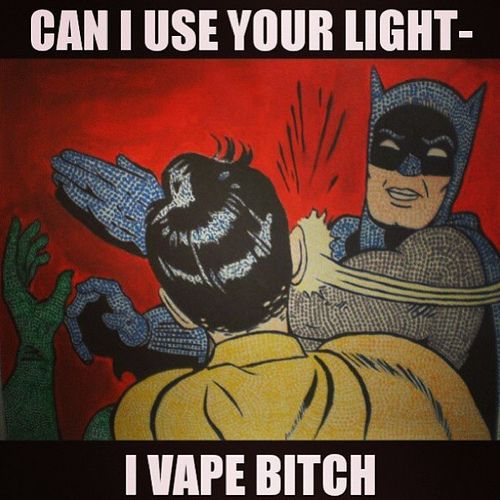Cacuqecig
VU Vendor
VU Vendor
Bronze Contributor
Member For 3 Years
Member For 2 Years
Member For 1 Year

American voters defied expectations Tuesday and delivered a narrow victory for Donald Trump, a first-time candidate with no political or government experience. For the second time in the last five elections, the president earned an electoral college majority without winning the popular vote. Gary Johnson, the Libertarian Party candidate, received just three percent of the vote. Johnson was the only candidate with a declared pro-vaping position, opposing the FDA’s deeming regulations and supporting adult access to vapor products and a free market.
Donald Trump Was Selected, What Future Will American Ecigs Wholesaler Face? What will the presidential election mean for vapers? It’s uncertain, but there is hope that a Republican Congress with a Republican president might create a pathway for modifying the Tobacco Control Act to expressly separate vapor products from the tobacco definition imposed by the deeming regulations. That will be a difficult process though, and as of now, no one knows where Donald Trump stands on vaping. His history is full of anti-smoking rhetoric, but no one knows if he will see vaping as a danger similar to smoking or a solution. The answer may depend on who advises him, and we don’t know who will be doing that.

What is likely is that Trump will be eager to reverse almost anything that President Obama implemented. That means that his cabinet appointments, like the Secretary of Health and Human Services, which oversees the FDA, will probably change course on many Obama initiatives in federal agencies. That could bode well for vaping. Mike Pence, who will be the next vice president, is well known to vapers as the governor who signed the crony capitalist vaping law in Indiana. Despite that, it’s doubtful that Pence has a formed opinion on e-cigarettes either; he probably cared less about the law’s content than he did about pleasing the people who advised him to sign it.
Sen. Ron Johnson won his race in Wisconsin, which had been in doubt. Johnson has been the most reliable ally to vapers in Congress, demanding answers from the FDA on its deeming rule. Many credit vapers for pushing Johnson over the top, including the senator himself. The most annoying opponent to vaping in the Senate also won. Democrat Richard Blumenthal was reelected in Connecticut to his second term. Also winning reelection was Sen. Richard Burr, Republican from North Carolina, who has publicly urged consideration of vapor products as harm reduction tools during Senate hearings.

In the House of Representatives, both sponsors of the Cole-Bishop amendment won reelection by wide margins. Republican Rep. Tom Cole of Oklahoma and Democrat Sanford Bishop of Georgia were both sent back to Congress.California voters overwhelmingly approved Proposition 56, which will increase cigarette taxes by $2 a pack, but also add a tax to vapor products that may be 70 percent or higher. Most of the money generated by the new tax will go directly to insurance companies and special interest groups, without requiring any new services to California residents. The vapor tax was buried in the tobacco initiative to ensure passage.
Donald Trump Was Selected, What Future Will American Ecigs Wholesaler Face? There is fear that the new tax, which will apply to all nicotine-containing vapor products, will destroy California’s vaping industry, forcing small companies into bankruptcy and large ones to flee the state. Better news came from North Dakota, where Ballot Measure 4 was defeated with a 62 percent vote. That measure would have added a 56 percent wholesale tax to tobacco products, and included vapor products as tobacco for the first time.

In the 84th legislative district in Pennsylvania, vape shop owner and industry advocate Chris Hughes lost his write-in campaign against Rep. Garth Everett. While the idea of a write-in candidacy was always a long shot, Chris’s many friends in the vape community had hopes that he might strike a blow against the legislature that had put many vape shops out of business with a 40 percent tax on vapor products. Everett had voted for the tax.
Seven states legalized c*nnabis Tuesday, including the first southern states. California, Nevada, Massachusetts, and Maine joined four others (Alaska, Colorado, Oregon, and Washington) and the District of Columbia in allowing users to possess and use m*rijuana for recreation. In Arizona, recreational use was defeated.

Florida, Arkansas, and North Dakota residents voted for legal medical m*rijuana use. Florida and Arkansas are the first states in the south to approve legal c*nnabis use. More than half the country now has access to some form of legal c*nnabis. Advocates are especially elated about the California win. The country’s largest state is always a bellwether for trends of any sort, and is also a center of c*nnabis agriculture.
Donald Trump Was Selected, What Future Will American Ecigs Wholesaler Face? “This represents a monumental victory for the m*rijuana reform movement,” said Ethan Nadelmann, executive director of the Drug Policy Alliance. “With California’s leadership now, the end of m*rijuana prohibition nationally, and even internationally, is fast approaching.”
